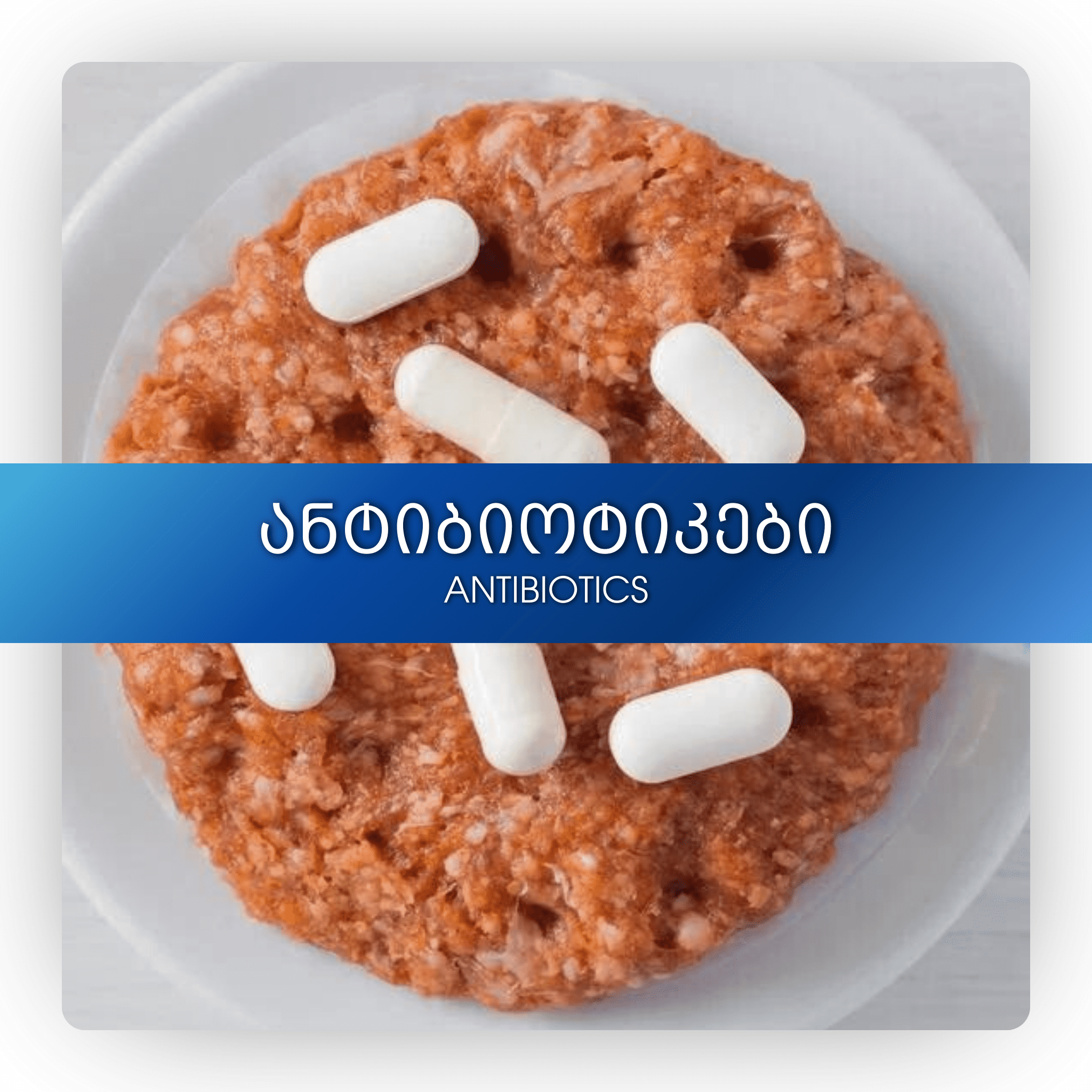Antibiotics
Antibiotics are substances that can stop the spoilage process of products,during storage such as fish, meat, poultry, fruits, etc. Researches confirm that antibiotics used in very minimal amounts for the processing of the mentioned product increase their shelf life by 2 times.
Antibiotics can cause side effects in the body when taken for a long time, namely, increased reactivity of the body to various factors of the external and internal environment, change of the gastrointestinal microflora - dysbacteriosis, which can develop secondary bacterial and fungal infections, emergence of candidiasis and antibiotic-resistant forms of microbes.
Among antibiotics, only some meet the mentioned requirements. In particular, the experimental treatment of meat and fish products with antibiotics showed us that only chlortetracycline and oxytetracycline (terramycin) have the ability to delay the growth of bacterial flora on the surface of these products.
Antibiotics should be used together with cold, because this allows to reduce their necessary amount, and this has great hygienic importance.
In the food industry, for processing perishable products such as meat and fish, antibiotics should be used when other preservation methods are impossible or difficult to use. Antibiotics are usually used as follows:
a) storage of food products in ice with antibiotics;
b) immersing food products in antibiotic solution for a certain time;
c) introduction of antibiotic into the body of the animal before slaughter.
Biomycin, or chlortetracycline, is a broad-spectrum antibiotic. Research has established that to extend the shelf life of raw fish, only biomycin ice should be used, which contains no more than 5 g of biomycin per 1 ton of ice. It is not allowed to see the fish in the solution. The use of chlortetracycline for processing dairy products, fruits, vegetables and berries is not allowed.
Nystatin is an antibiotic that kills yeast and mold; Used together with chlortetracycline.
Pimaricin or natamycin is an antibiotic used for fungicidal processing of cheese. For this, the surface of the cheese is treated with a 0.4% aqueous solution. Residual pamaricin content in cheese should not be more than 2 mg/kg.
Nizin is used to preserve fruit and vegetable products. food
English production nizin is used in the industry. It is a relatively new antibiotic. Nisin is quickly broken down in the gastrointestinal tract and does not adversely affect the gram-negative intestinal microflora. Nizin is used to prevent the premature swelling of cheese, to eliminate residual spore microflora, to extend the shelf life of sterile milk, etc. Sh.
Antibiotics used in the food industry should not be toxic and should not affect the quality of the food product. They should be characterized by a wide range of antibacterial activity
spectrum and have an easy inactivation ability during heat treatment or storage of the food product. Together with the products, no active antibiotic should enter the body
Even a minimal amount, because in the human body it can lead to the formation of resistant forms of pathogenic microbes. In addition, active antibiotic food
Long-term intake can cause undesirable changes in the composition of the usual, normal microflora of the gastrointestinal tract.
